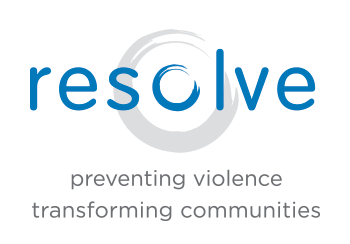Trayvon Martin’s death, as well as the lack of charges brought against his killer, was horrific for many, but was not surprising.
Women often tell me of their rape aversion plans. They usually include: carrying their keys between their fingers, never going anywhere alone, watching their drinks, not wearing revealing clothes, not going out at night, etc. “Sometimes,” they wearily declare, “I just wish I were a man.” What we don’t usually talk about is the dangers men face, especially men of color.
Men typically are not told to restrict their behavior in these limiting and largely unproductive ways. They are not warned that they’re being reckless, or worse – provoking any violence they might encounter – if they don’t adhere to these rules.
Still, the concept of men as free from the effects of violence in our society is a deeply flawed one. When I teach about violence prevention in schools, teen boys often are resistant until they realize that I’m not just there to teach the girls. Then they express confusion and resentment as they describe learning to evade physical assault by aggressive men and boys, while simultaneously having to demonstrate they are not a threat to others.
A recent story with Donna Britt, mother and author of brothers (& me), on NPR discussed how she raised her boys. She and others are doing a great job of making public what they call “the talk” that African American parents give their boys when they make that transition from cute child to possible threat in the public eye.
This is an everyday reality for boys and men of color, and I’m glad that this is getting some media attention and acknowledgment. Yet, in a culture where we say there’s no way to predict violence, profiling is inevitable.
Soon the evening news will interview another neighbor who testifies the murderer next door “seemed so normal” and everyone will nod that there was no way anyone could have known. Then, everyone, including the police, will grasp at whatever they can– the latest mug shots, the characters from the last movie – to be able to predict the next act of violence. Because we don’t want to be caught off guard.
Safety is not worth this cost to our communities. There are ways of predicting violence – which means there are ways of preventing violence – that don’t include profiling random men of color and blaming victims. Why are we not exploring these?
In an entertainment culture, it is not popular to explore predictability. When there is a mystery, you can be sure that everyone will stay glued to his/her screens, anxious to keep track of the newest development. Meanwhile, this also ensures that sponsors’ advertisements will be watched while viewers eagerly await the next installment of the story.
Despite Gavin de Becker’s book, The Gift of Fear, being on the bestseller list when it first came out over a decade ago, reporters still choose to interview the clueless rather than interview his team that studies how intuition works and the precursors to violence. As a culture, we treat those who know ahead of time as mystical outliers, never pausing to study how it is that the average person could foresee such a thing.
Those who accurately predict violence use behavior as their indicators, not hoodies or race. Concepts like forced teaming (pretending there is an alliance between you that doesn’t exist), using charm and niceness, giving too many details, typecasting, loan sharking, giving an unsolicited promise and ignoring the word “no” are all accurate ways of predicting when someone is acting manipulatively and possibly dangerous. Of course, in order to give credence to these ways of predicting violence and danger, we would have to admit that most violence happens by people we know and/or includes an “interview” process, rather than being a random shooting or a man behind the bushes who says nothing before grabbing his victim.
To say that violence is predictable is not equal to blaming those of us who have experienced it in the past. It is empowering everyone to have more tools for the future so that we may live fuller lives and feel less fear. It is challenging our society to distinguish between paranoia, prejudice and real intuition.

One thought on “The Effects of Fear & Violence: Mourning Trayvon”
Comments are closed.